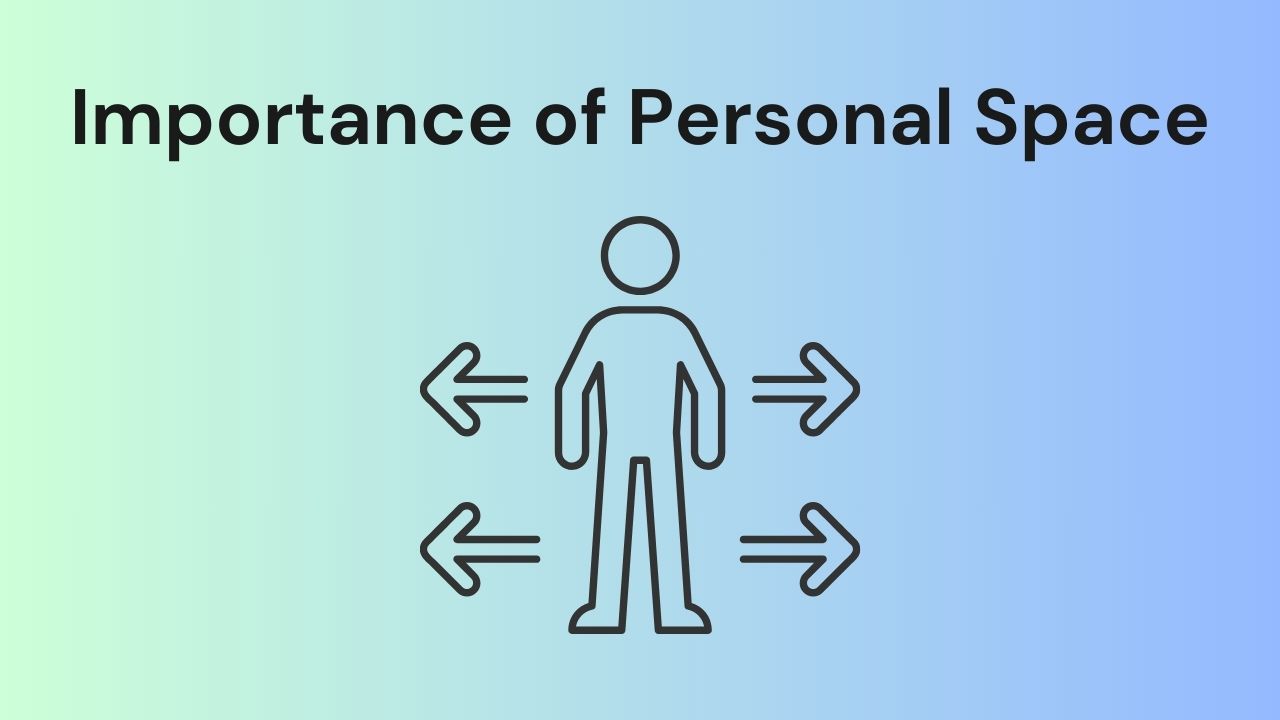The Importance of Personal Space: In today’s fast-paced world, the concept of personal space often gets overlooked amidst the hustle and bustle of daily life. However, understanding and respecting personal space is crucial for maintaining healthy relationships, fostering productivity, and preserving overall well-being.
The Importance of Personal Space
In this article, we delve deep into the significance of personal space and why it deserves our attention and respect.
Defining Personal Space
Personal space refers to the physical and emotional boundaries that individuals establish to maintain their comfort and privacy. It encompasses both the physical distance we prefer to keep between ourselves and others, as well as the emotional boundaries we set to safeguard our thoughts, feelings, and personal information.
Physical Boundaries
Physical boundaries vary from person to person and are influenced by factors such as cultural norms, upbringing, and individual preferences. For some, personal space may extend several feet, while for others, it may be more intimate, requiring minimal distance. Understanding and respecting these boundaries is essential for promoting mutual respect and avoiding discomfort or intrusion.
Emotional Boundaries
Emotional boundaries involve protecting one’s emotions, opinions, and personal experiences from being infringed upon by others. This may include setting limits on what information we share with others, asserting ourselves when our boundaries are crossed, and prioritizing self-care to preserve emotional well-being.
Maintaining Independence
Personal space plays a crucial role in preserving individuality within relationships. While intimacy and closeness are essential, it’s equally important for each person to maintain a sense of independence and autonomy. Respecting each other’s personal space allows for the freedom to pursue individual interests, hobbies, and self-care practices, ultimately strengthening the bond between partners.
Reducing Conflict
In any relationship, conflicts are inevitable. However, respecting personal space can help mitigate potential conflicts by preventing feelings of suffocation or intrusion. When individuals feel respected and valued, they are more likely to communicate openly and resolve conflicts in a healthy manner, rather than resorting to resentment or withdrawal.
Fostering Trust and Intimacy
By honoring each other’s boundaries, partners demonstrate trust and respect for one another. This creates a safe and supportive environment where individuals feel comfortable expressing themselves authentically without fear of judgment or rejection. As trust deepens, so does intimacy, leading to a stronger and more fulfilling connection.
Personal Space in the Workplace
Boosting Productivity
In a professional setting, personal space is equally important for maintaining productivity and efficiency. Providing employees with adequate physical and emotional space enables them to focus on their tasks without unnecessary distractions or interruptions. Whether it’s a private office or designated quiet zones, creating environments that respect personal space can enhance concentration and creativity.
Promoting Collaboration
While personal space is essential, so too is collaboration and teamwork. Finding the right balance between individual autonomy and collective effort is key to fostering a collaborative work culture. By encouraging open communication, mutual respect, and flexibility, organizations can create a supportive environment where employees feel empowered to contribute their unique perspectives while still respecting each other’s boundaries.
Enhancing Well-being
Personal space in the workplace also contributes to employee well-being. In today’s high-stress work environments, having moments of solitude and privacy can help alleviate feelings of overwhelm and burnout. Providing amenities such as quiet rooms or flexible work schedules allows employees to recharge and maintain a healthy work-life balance, ultimately leading to greater job satisfaction and retention.
Practicing Self-Care
Recharging and Rejuvenating
In our increasingly connected world, it’s easy to feel overwhelmed by constant demands and stimuli. Taking time to prioritize personal space allows us to recharge and rejuvenate both physically and mentally. Whether it’s enjoying solitary activities, such as reading or meditating, or simply disconnecting from technology, carving out moments of solitude can help restore balance and perspective in our lives.
Setting Boundaries
Setting and maintaining boundaries is an essential aspect of self-care. Learning to say no to activities or commitments that drain our energy or compromise our values is a powerful act of self-preservation. By prioritizing our well-being and honoring our own needs, we set the foundation for healthier relationships and greater fulfillment in all areas of life.
Managing Stress
Personal space serves as a buffer against stress and overwhelm. When we feel bombarded by external pressures or responsibilities, having a sanctuary where we can retreat and regroup is essential for maintaining mental and emotional resilience. Whether it’s a quiet corner at home or a favorite outdoor spot, having a designated space for relaxation and reflection can help us navigate life’s challenges with greater ease and clarity.
Conclusion
In conclusion, personal space is not merely a luxury but a fundamental aspect of human interaction and well-being. By understanding and respecting both our own boundaries and those of others, we can cultivate healthier relationships, enhance productivity, and promote overall happiness and fulfillment. Whether in our personal lives or professional endeavors, prioritizing personal space is essential for fostering mutual respect, trust, and harmony. So let’s make a conscious effort to honor and protect personal space, recognizing its importance in creating a more balanced and fulfilling life.
